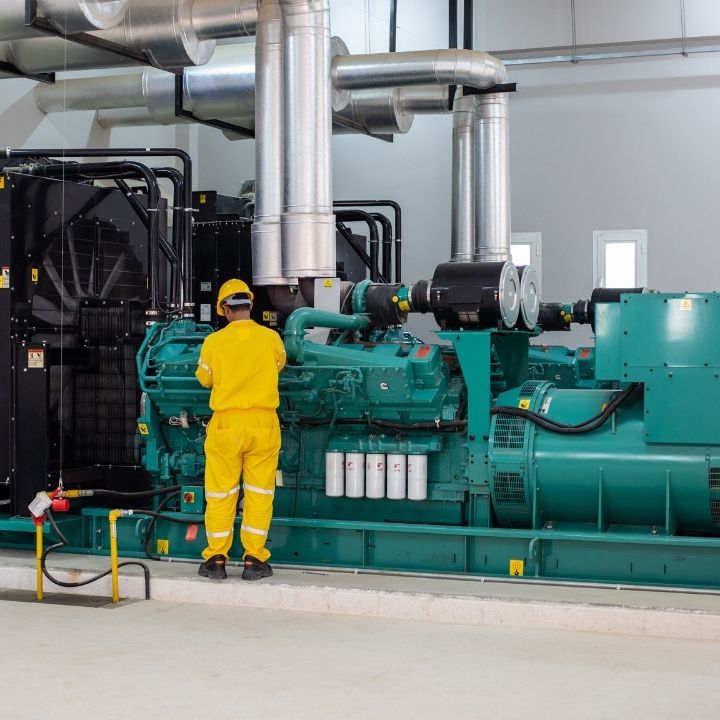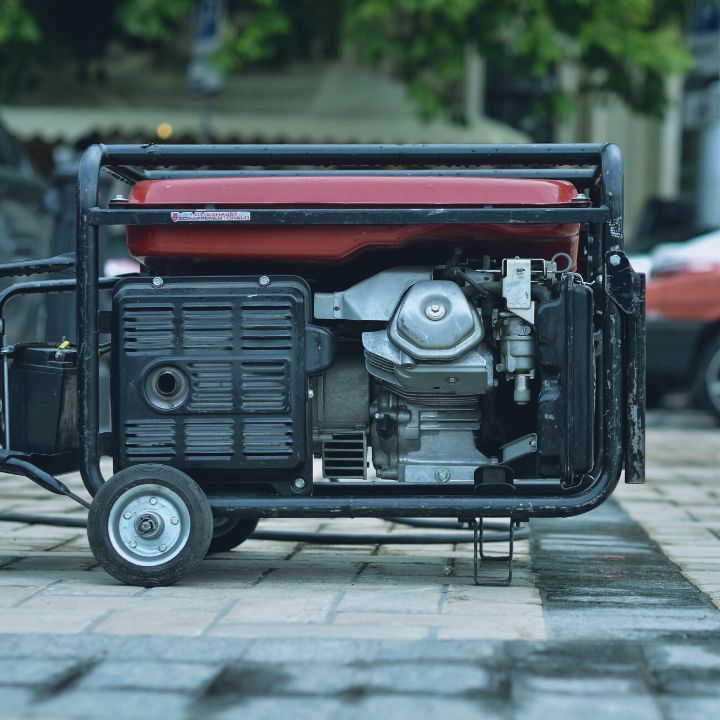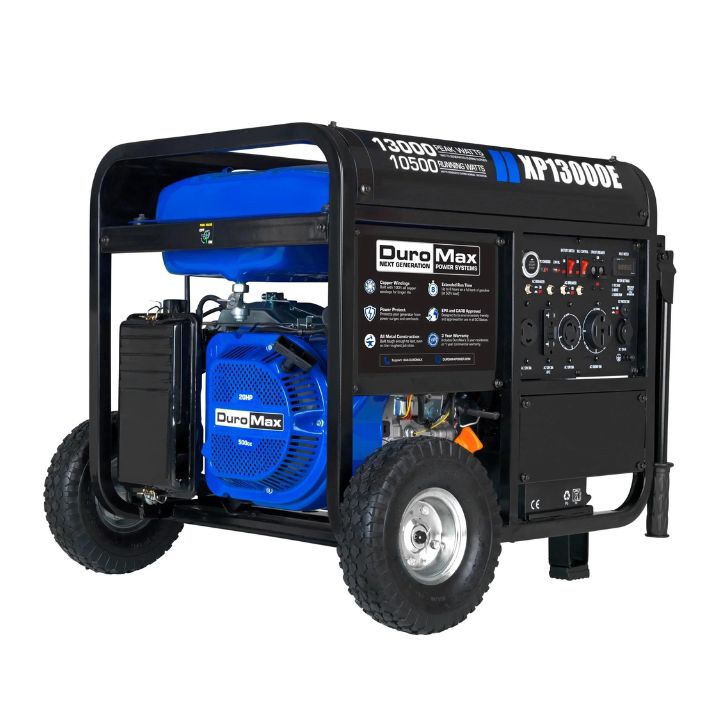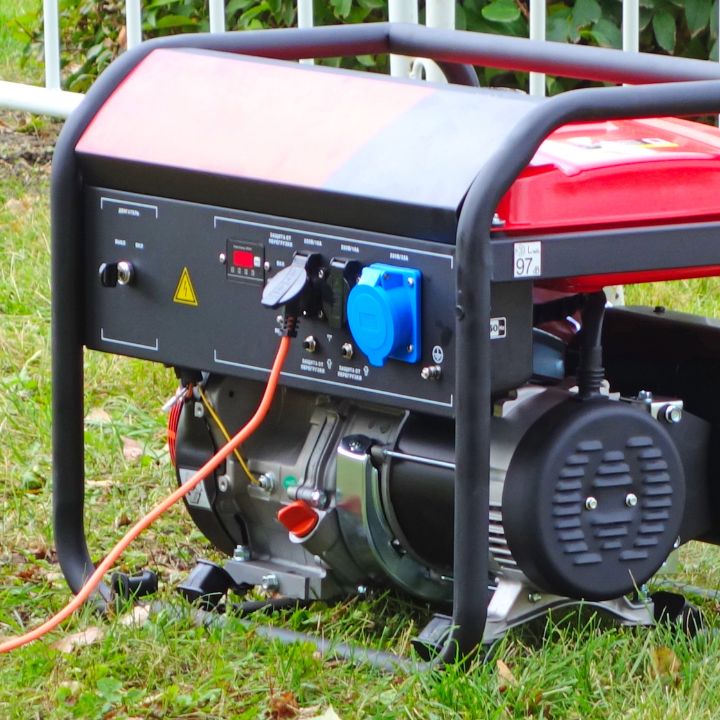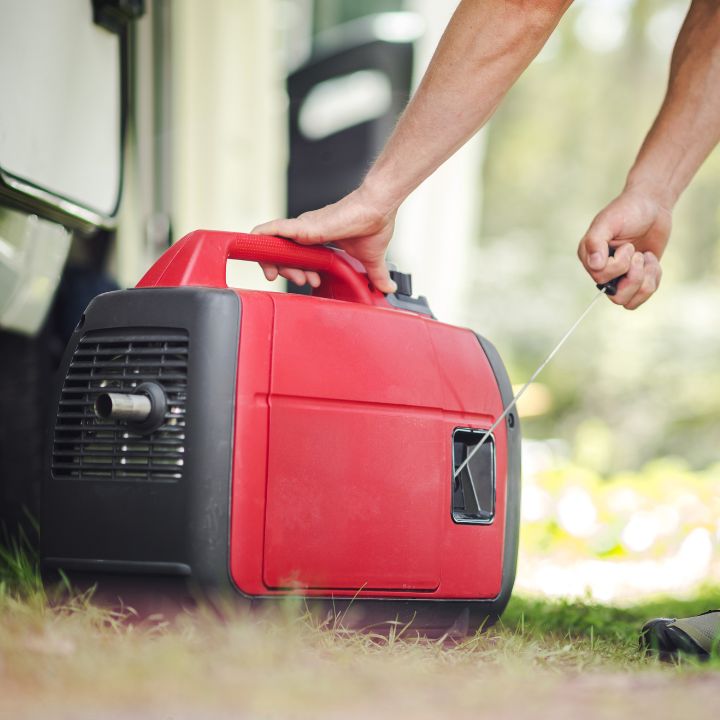Dos and Don’ts Of Generator Extension Cord When Camping
Safety is paramount when using a generator cord when camping. A few precautions can prevent catastrophe. A specific generator extension cord is essential, preventing potential electrocution and fire hazards. You can’t just use a standard extension you have laying around your home, but the power must travel. You’ll be running your generator in an outdoor space but need it to extend to your RV or inside your tent.
Campers will need to use an extension cord if you want to cook, heat the space, or even run or charge appliances. As well as exploring how to choose an extension cord for your camping trip, we’re also looking into how to use one safely. Read on for the best practices and precautions you must take if you want to ensure the safe use of an extension cord on your travels.
DO Consider the Gauge
The gauge refers to the thickness of the wire. A thicker gauge can handle much more power than a thin gauge. It’s important to remember that it is measured in a backward way. The smaller the number, the thicker the wire.
You can find extension cords for generators that are #14 or even #16. These are too thin for some heavy-duty uses. Instead, go for a thicker #10 or #12 gauge. Thicker gauge is capable of carrying power further. If you plug in a really thin wire you won’t be able to run it very far before it starts to overheat.
Cable traveling further causes something called “voltage drop”. This is a decrease in power that is running to the appliances. Running a thin cable a long distance will cause more of a loss. Thick cables handle this better.
Below is an example of 25 feet cords, the current they are drawing, and how much the voltage drops as a result.
| CURRENT DRAW | MINIMUM GAUGE | VOLTAGE DROP |
| 20A | 14 | 2.58% |
| 15A | 14 | 1.94% |
| 12A | 14 | 1.55% |
| 10A | 14 | 1.29% |
DON’T Be Fooled By How Thick it Looks
This sounds like a really basic error to make, but it does happen. It’s easy to look at a cord and think that it is nice and thick. Inside the casing it is hard to see how much is wire, and how much is insulation. This is why the gauge system exists. It is vital to actually do the research rather than assume that a wire is up to the task because it looks thick.
DO Get a Cord Rated For Outdoor Use
You won’t want to stay too close to your generator. Even if you are inside an RV, your generator extension cord will need to run outside. This keeps you away from any harmful gases being created. Generators give off carbon monoxide.
For campers, you’ll be used to the great outdoors. Your appliances may also be outside. You might be using your cord for a heater or cooker outdoors.
When you choose an extension cord you will be able to check if it is rated for outdoor use. It will usually have a bright orange cover made of vinyl or plastic. This protects the contents and the wire running within so it is not exposed to the elements. You will know that electricity and water do not mix, so this extra protection is vital.
DON’T Use Regular Extension Cords
The extension cord you use to take your vacuum cleaner into the spare room is probably not going to be rated for outdoor use. Even if the prongs fit, you can’t just grab it and connect it. The majority of home extension cords do not have the durability and protection you need outside. It can be tempting if you already have one of these cords. Outdoor-rated cords are more expensive, but it is worth it. Using the correct cord is the only way to ensure your safety.
DON’T Plug an Extension Into an Extension
Maybe you are tempted to keep plugging more and more extensions in. You might be trying to add to the length you can run the power, or trying to get more devices connected. Don’t do it.
If your generator has two outlets then you can run extension cords from both. You can’t keep adding extensions. Not only is this adding to the voltage drop, but it can also increase the load to a dangerous level. This means that the leads will heat up to dangerous levels and cause a fire risk.
This advice rings true for both indoor and outdoor extensions. You simply can’t keep adding load to the generator, it will cause the wire to heat and struggle. It can break devices and appliances and you may even end up with a fire.
DO Check the Amp Rating
Another vital reading on the extension cord is the amp rating. A 50 amp generator cord can handle higher wattages than a 20 amp generator cord.
It can seem like another confusing area to get to grips with. It’s actually really simple. The power outlets on your generator have a power rating. You just need to match up the generator power cord with the amp rating of the outlet. A 30 amp outlet needs a 30 amp cord.
A 30-amp locking outlet can convert to four 20-amp outlets like the sort you would have in your house. This means you can use any devices or appliances you normally would at home.
Luckily, the connectors are built to match up. The shapes are deliberately made to only plug into the outlets they are compatible with. This helps you to prevent overloading.
DON’T Place The Cord Near Fire Risks
If you take all the necessary precautions and you buy a suitable extension cord then the fire risks will be very low. However, it’s a good idea to still be cautious. There is a chance of a device malfunctioning or that you are drawing more power than you thought. There is also a chance of the cord breaking, which can lead to it heating up to dangerous levels.
It’s not a high risk, but it still makes sense to avoid fire risks. Don’t place your cord near flammable items or dry kindling.
DO Perform a Visual Check Before Using
Any nicks or breakages in the wire can create a hazard. Frayed wires are more likely to overheat and they might even spark. This can start a fire. If you step on or touch a frayed or broken wire it might even electrocute you.
Every single time you connect the extension cord, you need to check it. Look all the way along the wire, with particular attention at the connectors. If you see the exposed wire or the casing is broken, don’t take any chances.
You might assume that your cord is fine, especially if it has been safely stored away. You can never be sure. A mouse could have got into your RV and had a little chew, turning your extension cord into a potential hazard.
DON’T Cover or Wrap The Cord

Some people think they’re doing the right thing by covering the cord. For instance, you might wrap the excess length and put it under a tarpaulin. This is inadvertently creating a fire risk. The cord inevitably generates heat, and keeping it in a confined space lets that heat build-up. It could reach dangerous levels.
Even if you don’t end up with fire as a result, you will likely do damage to the cord. Constantly overheating is definitely bad for the cord. Just like ventilating the generator itself, you need to give the cord room to “breathe” and to stay cool.
DO Check the Voltage Rating
A lot of power generator extension cords work with multiple voltages. 240V ratings are normal for domestic plugs. Most things you can plug into a home outlet you can also use via a 240V outlet on a generator.
110-120V outlets are for things like heavy-duty appliances and power tools.
Generator cords are often good at handling either. Generators can be used for simply powering your lights outdoors, or they can be used for power tools. The solution is to give people the choice. A 125/250-Volt cord will work with either.
DO Use Your Cord to Keep Your Distance from the Generator
This is one of the main reasons to use an extension cord. You shouldn’t stay close to a generator. It gives off fumes and gases that can be harmful. They’re also noisy. Modern inverter generators are much quieter than historic models, but you still wouldn’t want to put up with the noise all day.
An extension cord lets you keep the noise and the gases in the distance while enjoying the benefits of the power.
DON’T Run Your Generator Constantly
Generators can’t cope with constant running. Neither can the cords. Running them for too long is very likely to cause damage.
Some generators have a built-in switch to shut the machine off if it is in peril. For example, if it runs out of fuel.
Leaving generators running for too long risks damage to the machine and to the cord you’ve plugged into it. Give them time to cool off. There isn’t a rule for how long you can run each generator. Consider its age and how much gas is stored within. Most models can cope with 8-24 hours before needing fuel and a break.
DO Get a Model That is Protected Against Extreme Weather
Being outdoor rated and being suitable for extreme weather are different things. If you know that you are going to use the model in extreme heat or extreme cold try to consider a generator extension cord that is capable.
Some top models of generator cords now have a thermoplastic coating. This helps to protect the wire from either extreme heat or extreme cold. Both can be dangerous or damaging, but heat can melt components and it can also add to the fire risk. Remember that the generator is already creating heat.
What Are The Warning Signs of Overloaded Generators (and Generator Cords?)
Many of the dos and don’ts on this list are about preventing overloading or overheating. There are many risks relating to using a generator cord incorrectly but these are the most hazardous.
How can you tell if a generator is overloaded? These are some of the signs:
- Poor performance. If the power output noticeably drops, and appliances and tools attached stop working, it is a sign that your generator could be overloaded.
- Black soot. This usually comes from a generator being old. However, overloaded generators working harder can produce dark soot.
- Heat. A little bit of heat is inevitable, but if you notice that the cables or the generator are getting overly hot then it could be because you have overloaded it.
- The circuit breakers keep kicking in. This is to trip the generator and prevent hazards. If something is wrong, the circuit breakers will shut off the machine to stop damage.
The best option is always to prevent the risks of overloading. Don’t keep adding extensions and don’t add more devices and appliances than the generator can handle. If you need to add a device like a cooker, you might want to shut off the AC for a while.
It’s an option to add more power, too. Some generators can be run in parallel, meaning that you can link them and enjoy the power of both.
Conclusion
A few tips for choosing and using your generator can go a long way to making sure you are safe. Finding a generator extension cord that can cope with multiple voltages and that has a thermoplastic coating to cope with all temperatures means you’re ready for whatever the elements throw at you. The Champion Model: 48033 is an example of an all-purpose outdoor cord.
It isn’t worth taking any risks when it comes to your safety. Find a cord you can rely on, and make sure you can enjoy worry-free camping trips with no shortage of power.

